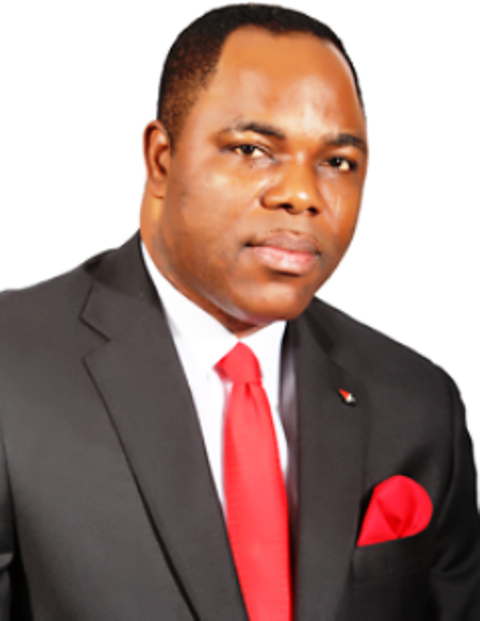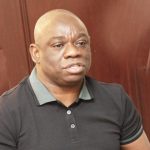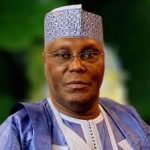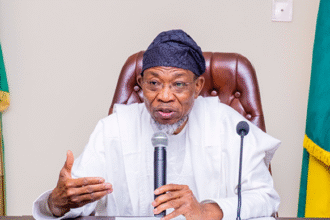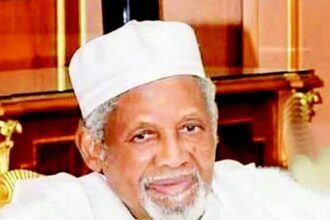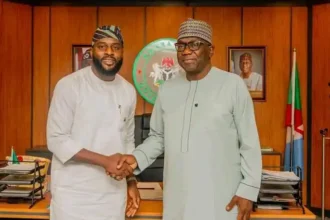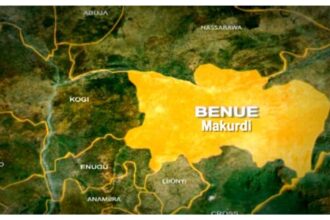...To get all news updates, Join our WhatsApp Group (Click Here)
Also Join our WhatsApp Channel (Click Here)
*****How He Secured A Multi-Billion Naira Loan To Finance The Revival Of Moribund Government-Owned NITEL and Yola Disco
*****+ How government’s refusal to honor contractual agreements ran him into monumental debt
It wouldn’t be hyperbolic to say that Dr. Tunde Ayeni has a patriot’s heart and the soul of a revolutionary. This is to assert the fidelity and stoic perseverance of the genius within the footholds of power and a troubled oil sector.
Yes, despite his exit from Skye Bank, where he served as chairman, the cascade of blows against the successful lawyer turned business magnate has neither softened nor ceased.
At the moment, Ayeni is battling tooth and nail to save his most audacious investment, Ntel, from some powerful forces decidedly hell-bent on taking over the telecoms company and probably messing him up.
A consortium run by Ayeni, NATCOM Telecommunications, bought over the moribund national telecoms company, NITEL, and its mobile subsidiary, MTEL, from the Federal Government in 2014 and transformed it to Ntel.
Within a year of operations, Ntel has emerged a force to be reckoned with in the very competitive telecommunications sector, introducing the most sophisticated 4G service to Nigerians, while delivering superfast call connect times, crystal clear voice-over-LTE and high-speed Internet access. No sooner had Ntel introduced these innovative services that its problems began.
In the last one week, Ayeni has come under a barrage of media onslaughts, bordering on his stewardship at Skye Bank Plc., essentially due to the multi-billion naira loan he secured to finance the revival of NITEL.
Prior to the take-off of the Global System of Mobile Communications, GSM, in Nigeria in 2001, the services of the national telecommunications carrier had been spasmodic at best. In spite of successive administration’s efforts to revive it, nothing worked, thus consigning NITEL to the dustbin or so, until NATCOM came through in 2014.
According to a retired Director in the old Ministry of Communications Technology which oversaw the bid for NITEL, “It is quite sad how in Nigeria we dig our own grave and yet cry that we are not making progress. I just saw an online medium publish some grave allegations about Tunde Ayeni and his stewardship in Skye Bank.
“While I do agree that officeholders should be accountable for their actions, I wonder what the real intent of the government or whoever is behind that story is. Having petitioned the Presidency, why hastily bring the same allegations to the media?” He wondered whether the loan was unilaterally obtained in such a big bank or it went through due process.
“Now, who approved the loan? If the bank did not find the business proposal worthwhile, why approve the loan in the first place? Could these alleged financial losses running into almost N300bn as stated by the bank possibly have been accumulated in just over two years of Ayeni’s chairmanship because he only became chairman in 2013?
How much was the total deposits base of the bank during the over two years that one chairman would incur such expenses in so short a time? Why single Ayeni out of the three chairmen when Alhaji Musiliu Smith and Mrs (Moronkeji) Onasanya are still alive?”
Tunde and his partners borrowed money from the bank to buy Yola Electricity Distribution Company, but unfortunately for them, because of terrorist attacks, they declared a force majeure. Following the declaration of a force majeure by Integrated Energy Distribution and Marketing Company, the core investor in the Yola Electricity Distribution Company, the Federal Government took over the beleaguered power firm.
Consequently, the Federal Ministry of Power took over the management and control of the electricity distribution company since 2015. The Federal Government promised to pay back Integrated Energy Distribution Company $180 million since 2015, an agreement that the government has not fulfilled to date. The government has taken Yola Disco from the core investor and has yet to refund (the investor) the money used to acquire the asset.
The Yola Disco is running even as you read, and the Federal Government is even planning to sell it. Ayeni and his partners are paying back the huge loan to the bank with a huge interest. Meanwhile, it’s the same government that owes Integrated Energy Distribution Company such a humongous amount of money that is perpetrating cynical witch-hunts against them. Isn’t it ridiculous?
Obviously, the source also said, “The intent of this is either to conduct a media trial and convict the person (given Nigerians’ general phobia of not wanting to be in the press), or to pre-empt the President and blackmail him to act in a particular manner. Or better still, it may be to achieve a sinister motive of discrediting the man in the eyes of potential partners so as to make him a commercial outcast and ultimately overrun his business. Otherwise, how do you explain this action?
However, that electricity supply in Nigeria is still a spasmodic flourish, a yo-yo at best, is fairly and squarely the missteps and myopia of former President Goodluck Jonathan. This is the unanimous assertion of the investors behind Distribution Companies, DISCOs, who are the providers of last mile services in the electricity supply value chain.
Alas, at the time of the acquisition of the unbundled companies, core investors paid $2.238 billion which they sourced at N150 to the dollar. Two years later, dollar oscillated between N370 and N400, an investment-debilitating increase. This has plunged many of the investors into harrowing webs of debts.
Many have lost their assets and savings in the process. Life could not be more difficult for genuine, patriotic Nigerians who saw an opportunity to bail their fellow countrymen out of the cauldron of darkness but got frustrated by the system.
Now, their migraine does not end there; back then, the Federal Government promised to invest about $7 billion to revamp the old, obsolete networks; maintenance of network equipment; investment in trained manpower and customer data; increase meter penetration; and resolve health, safety and environmental issues.
All these have remained typical Nigerian politicians’ promises, empty and vainglorious. To compound the problems of the investors since the conclusion of the privatisation process, they are now faced with huge operational challenges, clearly visible in their operations and service delivery; lack of sufficient energy supply from the national grid; and a near absence of investments due to poor revenues, inadequate tariffs and external funding constraints.
According to the Executive Director, Association of Nigerian Electricity Distributors, the umbrella body for the DISCOs, Sunday Oduntan, “In that agreement, there is a list of what the Federal Government was going to do and what we as operators, the DISCOs, GENCOs and investors are to do. But unfortunately, the government reneged on all its obligations and promises.
“And those things that the government offered to do were essentially preconditions meaning ‘if I do this, you will do that. So, if I don’t do this, you will not be able to do that.’ An example is the issue of tariffs. From day one, the term they used was cost-reflective tariff. The simple meaning of that is what can be called the appropriate pricing of products. Tariff is about price and electricity is the product.”
Captain Idahosa Okunbo, a businessman, philantropist and investor extraordinaire, said, “The Federal Government has not met most of the conditions under which we should operate as a distribution company, and the best thing that can happen today to us or to me is for the government to take back the assets and pay us back our money.
“We are paying the loan we took to acquire the Yola Disco; we are also paying interest on the Yola investment and the Yola Disco has already been handed over to the government three years ago. Yet, we, as investors, have not been refunded. Is that how to do business? Is that how to encourage investors to do business in Nigeria?” Continuing, the billionaire oil magnate and philanthropist, said, “We brought business out of those entities. In fact, those assets should have been sold for $1 while we invest the money we paid to the Federal Government in optimising the asset.
“How can the government have sold these assets to Nigerians in dollars when the assets are in naira?”
Literally emitting fire, Okunbo also said, “I am not a thief; I have been servicing debts from my hard-earned money, servicing debts of a business that is not working. We carry members of staff that we are constantly paying salaries to.”
Capt. Okunbo, a former pilot who retired from the aviation industry in 1988 when he was barely 30, Okunbor, also a popular philanthropist, states, “In my three decades in business spanning engineering and technology, energy, integrated service in the petroleum sector, maritime, security, agriculture and others, integrity has been my guiding principle and a core value with which I have been able to earn trust and confidence of companies and corporations of global repute.
I have never stood before any administrative, judicial or legislative panels to answer any questions related to any shady deal. I have conducted my businesses with utmost openness, honesty and integrity. I am not oblivious of the fact that not a few people look up to me as a role model; the least I can do is to exhibit exemplary leadership quality to this group of young Nigerians, many of whom interact with me on a regular basis.”
Interestingly, however, there are so many people that borrowed huge money from the banks and stash it in foreign banks while some keep theirs in shallow grave. And they still walk freely in Nigeria.
With the present situation of things, it is short of reaching the conclusion that our government is set up such that it cripples local businesses and discourage local investors while offering foreigners unbelievable waivers and opportunities that are denied Nigerians who genuinely want to move the country forward.
The Capital
You can get every of our news as soon as they drop on WhatsApp ...To get all news updates, Join our WhatsApp Group (Click Here)
Also Join our WhatsApp Channel (Click Here)



